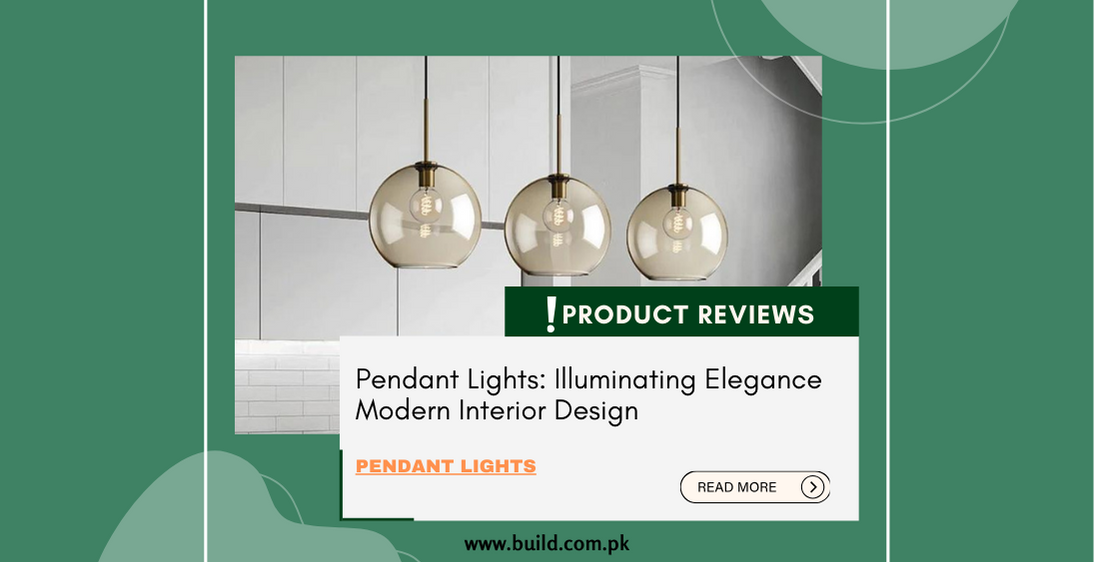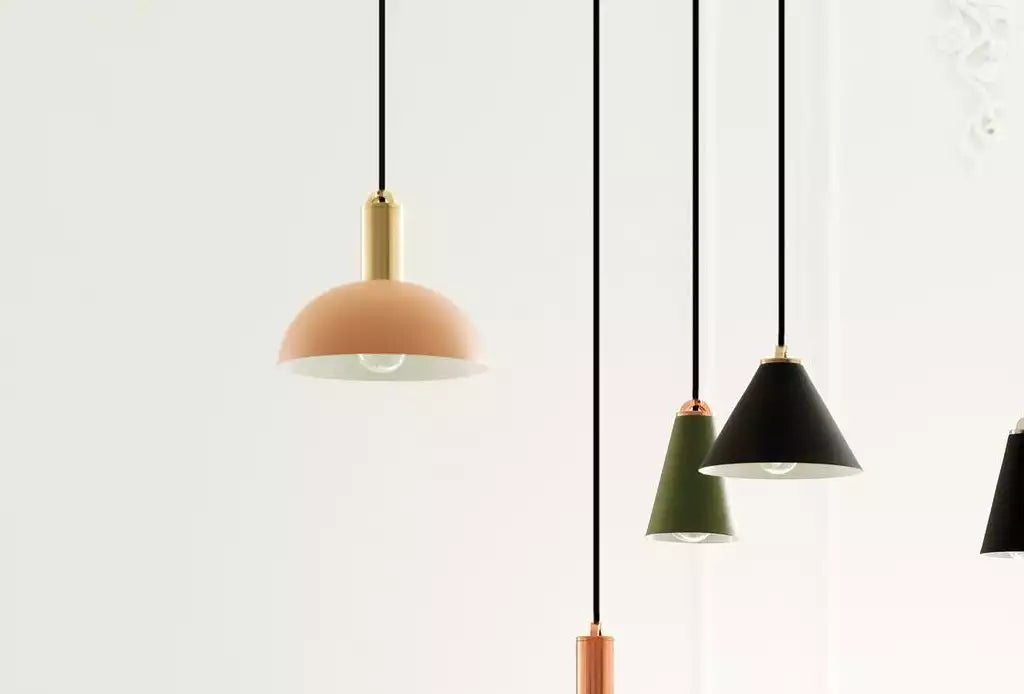Pendant Lights: Illuminating Elegance Modern Interior Design

Introduction:
In the grand tapestry of interior design, lighting plays a
pivotal role in setting the tone, accentuating aesthetics, and creating an
ambiance that transcends mere functionality. Among the myriad lighting fixtures
that have captured the imagination of designers and homeowners alike, pendant
lights stand out as versatile, stylish, and inherently captivating. In this
detailed exploration, we delve into the world of pendant lights, unraveling
their history, diverse designs, functional applications, and the transformative
impact they wield in modern interior spaces.
A Glimpse into History:
The pendant light, with its origins rooted in the grand
chandeliers of centuries past, has undergone a fascinating evolution. Emerging
as a single, suspended light fixture, pendants deviated from the opulence of
their predecessors, embracing simplicity and functionality. The mid-20th
century witnessed a surge in the popularity of pendant lights, propelled by a
shift towards modernist design principles. Tod ay, these luminous gems adorn a
spectrum of spaces, from contemporary homes to trendy cafes and high-end
offices.

Diverse Designs
Elegance of Classic Pendants:
Classic pendant lights, often characterized by a single bulb
suspended from a chain or rod, exude timeless elegance. These fixtures,
sometimes adorned with glass shades or metallic elements, seamlessly blend with
various design styles, from traditional to transitional.
Contemporary Chic:
In the realm of contemporary design, pendant lights have
evolved into sleek and innovative forms. Geometric shapes, asymmetrical
designs, and the use of unconventional materials are hallmarks of modern
pendant lighting. These fixtures not only illuminate spaces but also serve as
statement pieces, adding a touch of avant-garde flair.
Artistic and Sculptural Pendants:
For those seeking an infusion of art into functional
elements, sculptural pendant lights offer a captivating solution. These
fixtures, resembling works of art more than traditional lighting, redefine the
boundaries between form and function, turning illumination into an artful
expression.
Clustered Brilliance:
The trend of clustering multiple pendant lights in a singular
installation has gained immense popularity. This design approach introduces a
dynamic and visually engaging element, playing with varying heights and shapes
to create a captiva ting focal point.
Functional Applications
Task Lighting in the Kitchen:
Pendant lights find a natural home in kitchens, where they
serve as task lighting above islands or dining areas. The focused illumination
enhances visibility for cooking tasks while adding a touch of sophistication to
the culinary space.
Lighting in Living Spaces:
In living rooms and lounges, pendant lights contribute to
ambient lighting, creating a warm and inviting atmosphere. Whether suspended
above a coffee table or strategically placed to define seating areas, these
fixtures add a layer of visual interest to the overall design.
Dramatic Entryway Statements:
The entryway sets the tone for the entire home, and pendant
lights make a dramatic statement in this space. Grand, oversized fixtures or a
cluster of pendants can transform a foyer into a welcoming and visually
arresting introduction to the residence.
Bedroom Pendants:
In bedrooms, pendant lights offer a stylish alternative to
traditional table lamps. Hung on either side of the bed or centrally
positioned, they contribute to a cozy and intimate ambiance, creating a
relaxing haven for rest and rejuvenation.
Materials and Finishes:
The versatility of pendant lights extends to the myriad
materials and finishes available. From sleek metallic finishes like chrome and
brass to the warmth of natural materials like wood and rattan, the choices are
vast. The selection of materials allows homeowners to customize pendant lights
to complement existing design elements and color schemes.
Innovations in Lighting Technology:
Advancements in lighting technology have ushered in a new era
for pendant lights. LED technology, in particular, has revolutionized the
efficiency and longevity of these fixtures. LED pendant lights not only consume
less energy but also offer a spectrum of color temperatures, allowing users to
customize the ambiance according to their preferences.
Installation Considerations:
While the aesthetic allure of pendant lights is undeniable,
their installation requires careful consideration. Factors such as ceiling
height, the scale of the space, and the intended use of the pendant lights
influence the choice of fixtures and their placement. It's advisable to consult
with a professional lighting designer or electrician to ensure optimal results.
Conclusion:
In the grand tapestry of interior design, pendant lights emerge as radiant stars, casting a glow that transcends mere illumination. From classic elegance to contemporary chic, these fixtures offer a spectrum of designs to suit diverse tastes and design sensibilities. Their functional versatility, combined with artistic expression, makes pendant lights indispensable in shaping the ambiance of modern interiors. As technology continues to evolve and design boundaries are pushed, the journey into the world of pendant lights promises to be an illuminating exploration, where e ach fixture becomes a beacon of style, sophistication, and transformative brilliance.









